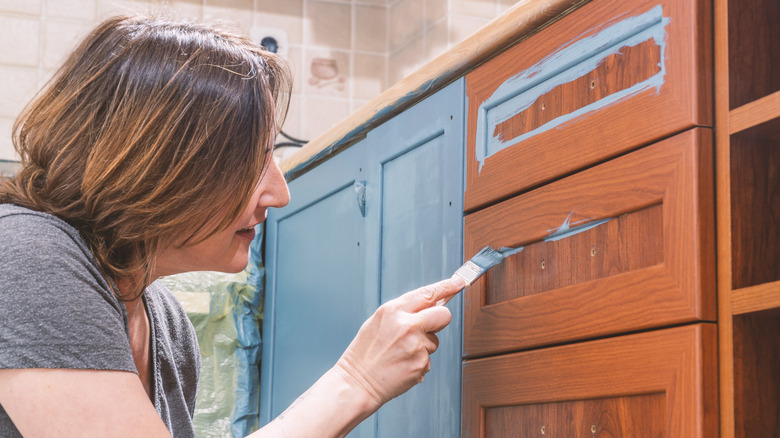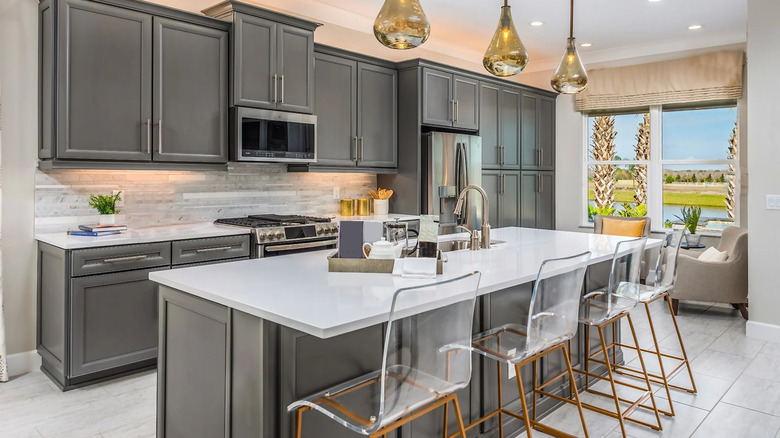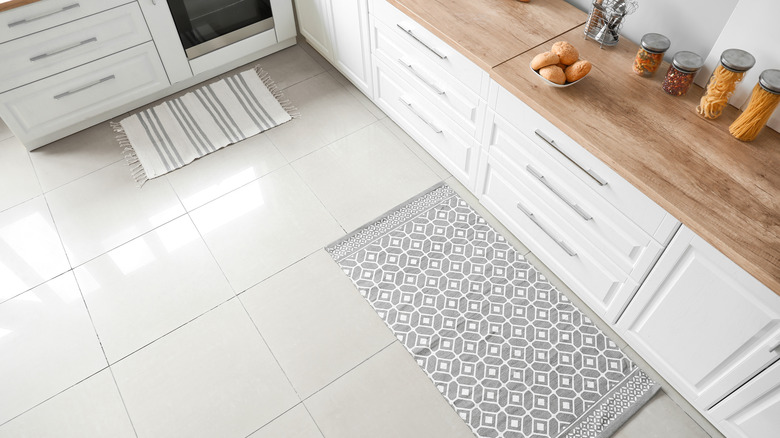Should Kitchen Cabinets Be Painted Lighter Or Darker Than Countertops?
If you're remodeling your kitchen, one of the most important things to consider is the color scheme. The kitchen is one of the most important rooms in the home, so you need to get it right if you want to maintain your home's value and ensure you and your family are comfortable. While the colors you choose for your countertops and cabinets ultimately come down to personal preference, following some general rules and guidelines can help make you happier with the final results.
Generally speaking, it's recommended that countertops are kept lighter than cabinets. This allows for an aesthetically pleasing design that also makes your kitchen feel more spacious. Despite this, there are some benefits to taking the opposite approach and opting for darker countertops and lighter cabinets. The most important thing is to have a marked contrast between these two features in your kitchen. One exception, however, is if you have an all-white kitchen. In this case, it's fine to choose white for both cabinets and countertops. White kitchens will always be in style, so this design choice is well worth considering.
Pros and cons of contrasting counter-cabinet color schemes
If you choose lighter countertops, you'll be making a choice that is common for kitchens today. Lighter countertops can draw the eye, and if your kitchen is small, they won't be overwhelming or seem too busy. They can even make your kitchen space seem bigger than it actually is. Additionally, there are also more material options you can choose from when selecting lighter countertops, including classic quartz and marble. On the other hand, these countertops will show imperfections, dirt, and grime more easily than darker countertops.
When you have a darker countertop-lighter cabinet combination, dirt and grime will show less and any flaws in the craftsmanship will be harder to see. The dark color of the countertops can also be more welcoming and make an overly large kitchen space seem smaller and cozier. Despite this, darker countertops aren't as trendy as lighter countertops. They're not the ideal choice for a kitchen that's small or average in size since they can make the space feel even smaller. Despite the dark color hiding flaws in the countertops themselves, dark counters may leave flaws in other kitchen features more visible than they would be otherwise.
Best colors for kitchen flooring
In addition to choosing the color of your countertops and cabinets, it's important to think carefully about the flooring color as well. While you may not want to match your kitchen countertops with your flooring exactly, you should choose a color that complements them well. It's best if your flooring doesn't directly match your countertops but simply uses one of the colors within the countertops instead. Try to keep the colors within the same color palette to give your kitchen the most attractive appearance.
You should also consider the flooring materials when making your choice. In this case, there are no standard rules to follow. However, keep in mind that lighter colors will make your kitchen seem larger and more open, while dark colors can make a space seem smaller. Bolder flooring might be a good choice if you want to add a striking focal point to the room.


